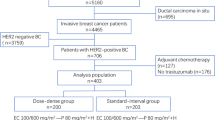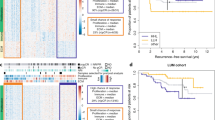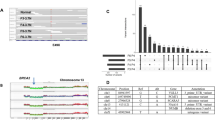Abstract
The relationship between the response to chemotherapy with cyclophosphamide, epirubicin and fluorouracil as well as the time to progression of metastasised breast cancer and DNA ploidy and S-phase fraction (SPF) of primary tumours was examined using paraffin-embedded tumour tissue from 81 patients. The response to chemotherapy was significantly better in patients with tumours with a high SPF, and in addition the time to progression was longer in the high-SPF group. There was no significant difference when the DNA ploidy and response to treatment were compared.
This is a preview of subscription content, access via your institution
Access options
Subscribe to this journal
Receive 24 print issues and online access
$259.00 per year
only $10.79 per issue
Buy this article
- Purchase on SpringerLink
- Instant access to full article PDF
Prices may be subject to local taxes which are calculated during checkout
Similar content being viewed by others
Author information
Authors and Affiliations
Rights and permissions
About this article
Cite this article
Hietanen, P., Blomqvist, C., Wasenius, VM. et al. Do DNA ploidy and S-phase fraction in primary tumour predict the response to chemotherapy in metastatic breast cancer?. Br J Cancer 71, 1029–1032 (1995). https://doi.org/10.1038/bjc.1995.198
Issue date:
DOI: https://doi.org/10.1038/bjc.1995.198
This article is cited by
-
The combination of Ki67, histological grade and estrogen receptor status identifies a low-risk group among 1,854 chemo-naïve women with N0/N1 primary breast cancer
SpringerPlus (2013)
-
Accumulation and distribution of doxorubicin in tumour spheroids: the influence of acidity and expression of P-glycoprotein
Cancer Chemotherapy and Pharmacology (2011)
-
Reliability of cyclin A assessment on tissue microarrays in breast cancer compared to conventional histological slides
British Journal of Cancer (2006)
-
A model of quiescent tumour microregions for evaluating multicellular resistance to chemotherapeutic drugs
British Journal of Cancer (2005)
-
Topoisomerase II-α Expression in Different Cell Cycle Phases in Fresh Human Breast Carcinomas
Modern Pathology (2002)



